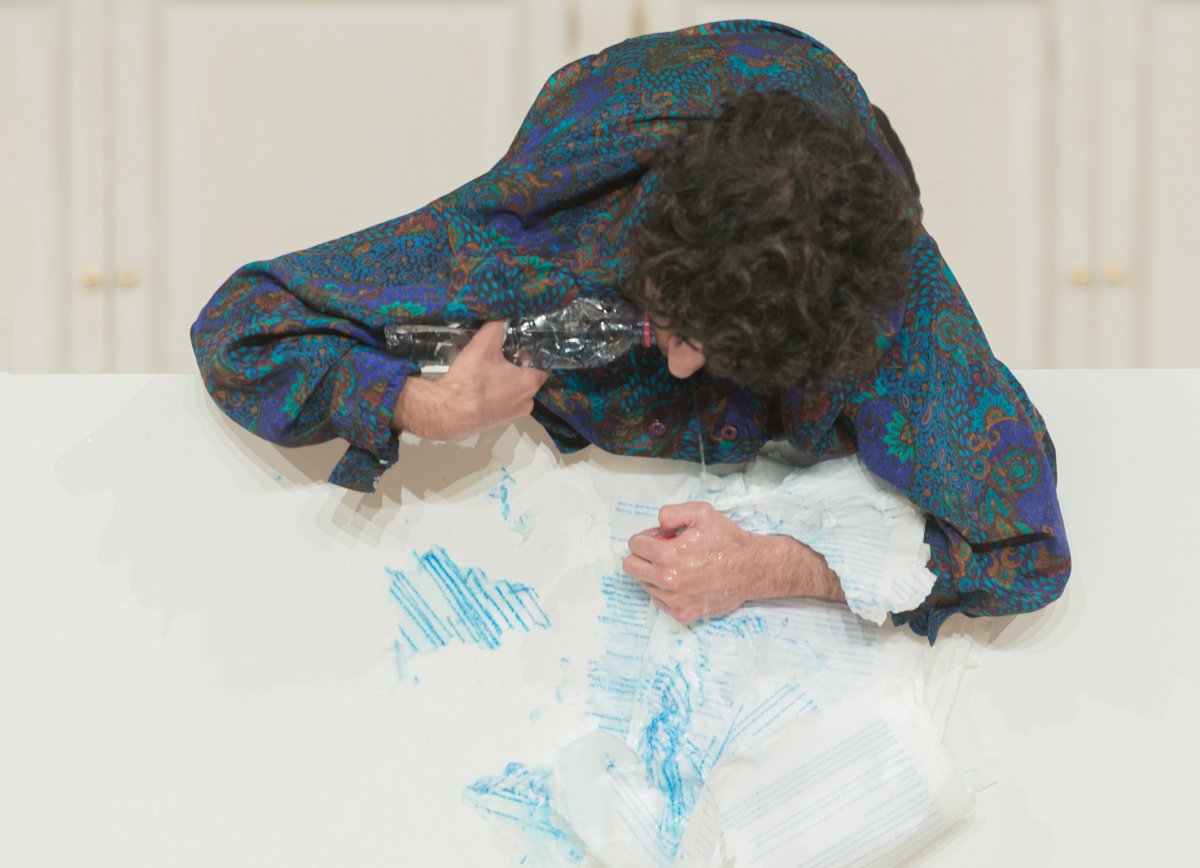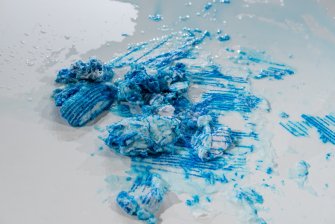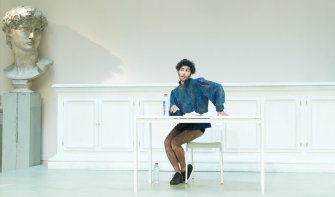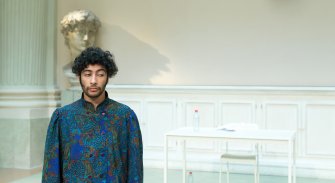Farci.e
Sorour Darabi
In Farci.e Sorour Darabi affronta il rapporto tra linguaggio e sistemi normativi. Proviamo ad immaginarci di provenire da un mondo neutro e di trovarci improvvisamente in un altro in cui a tutto è assegnato un genere. Sorour Darabi è di origine iraniana e nella sua lingua madre - il Farsi - non esiste la distinzione di forma tra maschile e femminile. Da quando vive in Francia non ha mai smesso di cercare dei modi per adattarsi a questo mondo in cui tutto, letteralmente, è maschile o femminile. In Farsi, alla parola "genere" corrisponde il termine "jenssiat", che significa materia. Applicato a un oggetto, jenssiat specifica di che cosa è fatto: la materia/genere del tavolo è il legno. Applicato a esseri viventi - umani o animali - ne specifica il sesso. A partire da questa impossibile traduzione tra lingue e concezioni del mondo, Darabi dà corpo a una serie di interrogativi in cui l’intrico tra attributo e sostanza, essenza e identità crea un mix inestricabile di pelle, carne, ossa, muscoli, sangue, cellule, linguaggio, suono, sessualità e umori, facendo vacillare ogni discorso.
ideazione, coreografia e performance Sorour Darabi
light design Yannick Fouassier
tecnico luci Jean-Marc Ségalen
occhio esterno Mathieu Bouvier
amministrazione Charlotte Giteau
distribuzione Sandrine Barrasso
produzione Météores
coproduzione Festival Montpellier Danse, ICI-CCN de Montpellier Occitanie Midi-Pyrénées
col sostegno di CND Pantin per la residenza, Honolulu-Nantes, Théâtre de Vanves
si ringrazia Loïc Touze, Raïssa Kim, Florence Diry, Pauline Brun, Jule Flierl, Clair.E Olivelli, Zar Amir Ebrahimi
presentazione col sostegno di Institut Français d'Italie
In Farci.e, Darabi confronts the violence of language, exerienceda a true ingurgitation of established norms. What if you were coming from a neutral world and, all of a sudden, everything had a gender? The Iranian dancer Sorour Darabi has a personal answer to this question. In her/his mother tongue, Farsi, there is neither a masculine nor a feminine form. Ever since s/he has been living in France, s/he continues to find ways of adapting to a world in which literally everything is either masculine or feminine. With no exception. In Farsi, the word 'gender' is pronounced 'جنسیت jenssiat', which means material. When it applies to objects, it refers to their materiality. When it applies to living beings, humans or animals, it refers to their sexes. Therefore, in her/his language, the 'gender of the table is wood.' So, is her/his gender the skin, the flesh, the bones, the muscles, the blood, the blood vessels, the capillaries, the cells ...?
concept, choreography and performance Sorour Darabi
light design Yannick Fouassier
lighting operator Jean-Marc Ségalen
outside eye Mathieu Bouvier
administration Charlotte Giteau
touring Sandrine Barrasso
production Météores
coproduction
Festival Montpellier Danse, ICI-CCN de Montpellier Occitanie Midi-Pyrénées
with the support of CND Pantin in the frame of a residency, Honolulu-Nantes and Théâtre de Vanves
special thanks to Loïc Touze, Raïssa Kim, Florence Diry, Pauline Brun, Jule Flierl, Clair.E Olivelli, Zar Amir Ebrahimi
presented with the support of Institut français d'Italie




